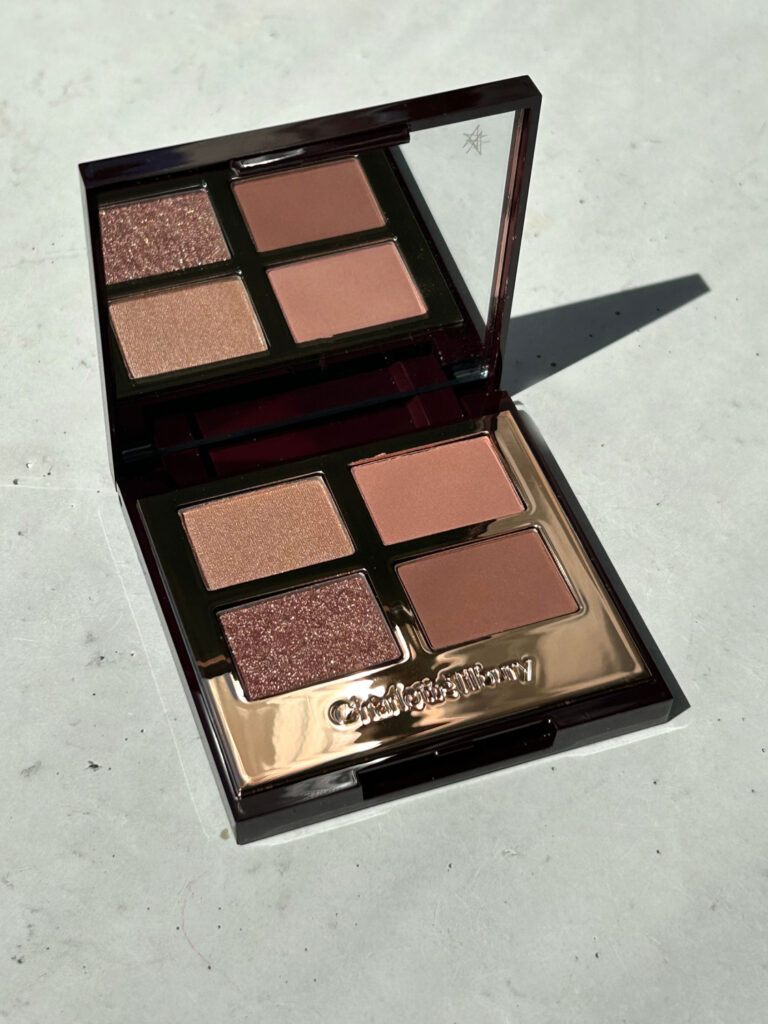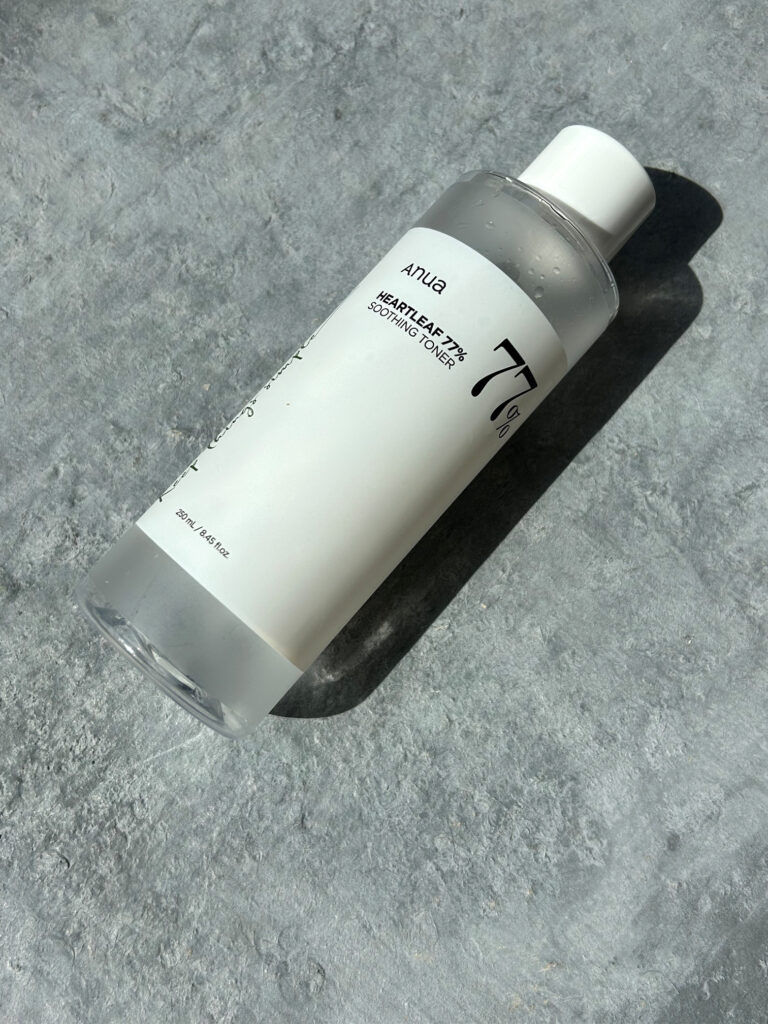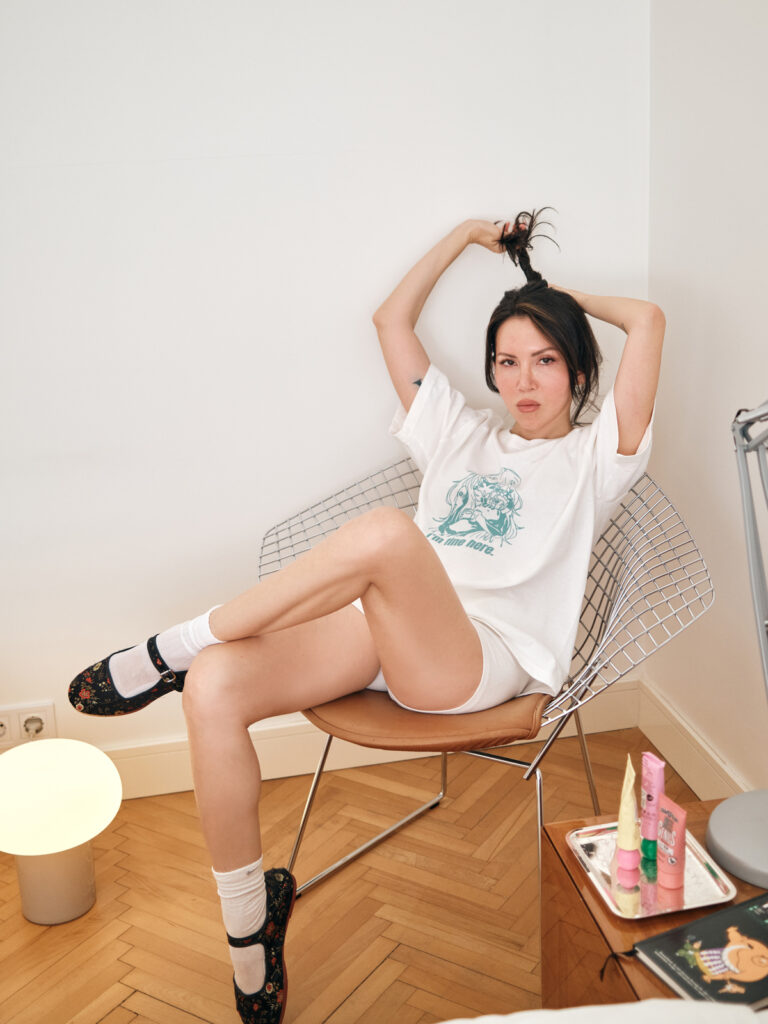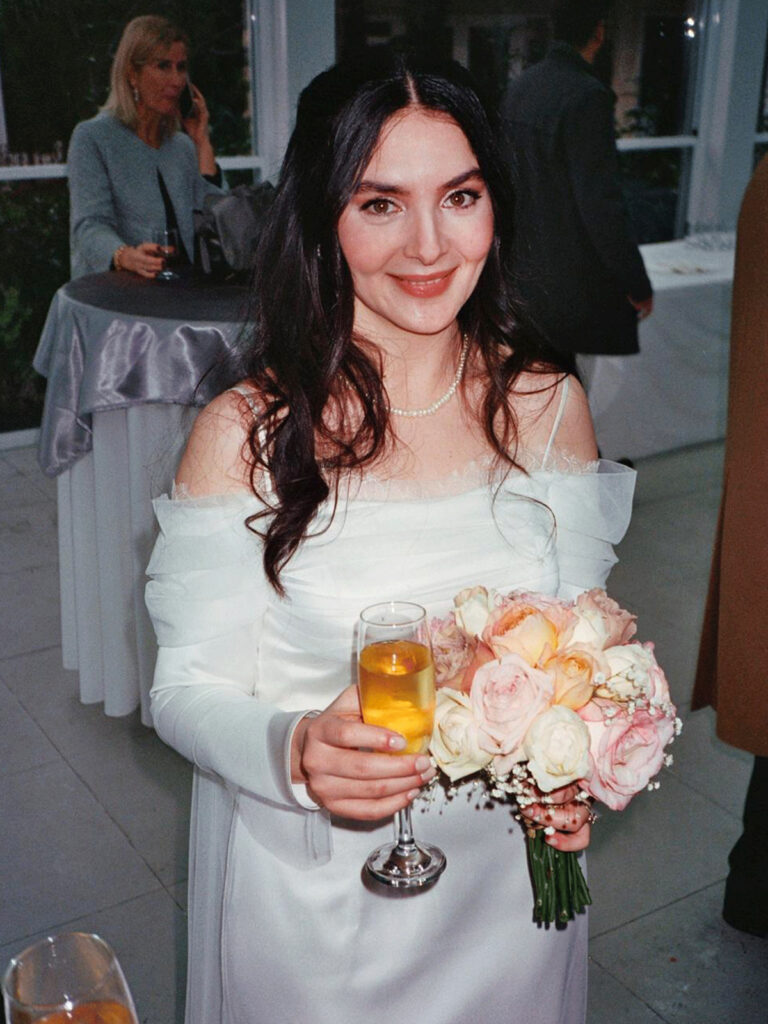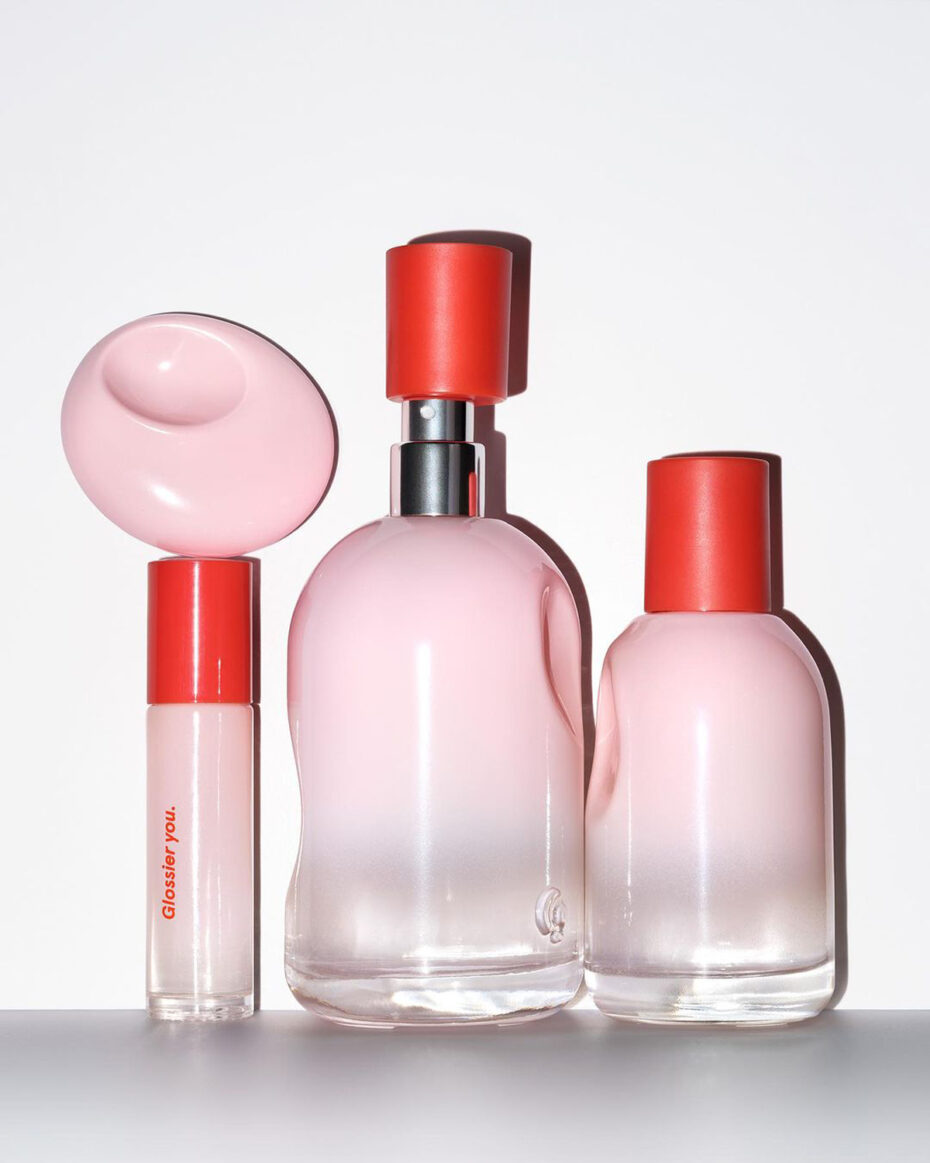
Photo: Glossier
Stories
Marisa Meltzer On The Era Of Glossier and The Power Of Beauty
We talk to author and beauty journalist Marisa Meltzer on her book Glossy: Ambition, Beauty and the Inside Story of Emily Weiss’s Glossier—the portrait of a disruptive brand and its founder that led a revolution beyond the beauty industry.
Text Defne Sarıçetin
As a writer who has covered beauty for two decades, Marisa Meltzer knew the story of Glossier was important; one of the most influential brands of the 21st century, and its founder, Emily Weiss, the enigmatic visionary.
Meltzer first interviewed Emily at her home in 2019, noticing the founder had every business book imaginable. Afterward, Meltzer walked into a bookstore searching for well-known start-up stories about women-led companies. The gender disparity in biographies was startling. There was almost nothing about women CEOs in tech or founders like Emily, who have been so culturally impactful. Meltzer knew she could be the one “to create a balanced view of Weiss and all that her company Glossier has innovated without sugar-coating her flaws.”
Everything has changed since Glossier’s debut in 2014: where and how products are sold, the emotional and social messages promoted alongside the skincare and makeup. Glossier started a transformation in the beauty industry with its branding and unique approach to influencer marketing. It also taught a generation of business leaders how to talk to Millennial and Gen-Z customers or build a cult following online. Meltzer writes that the company was also at the center of many issues that defined this era, such as “racial reckoning, the labor movement, pandemic shutdown, supply chain problems, female founders falling (or being pushed?) from grace.”
She was fascinated by Glossier as an exceptional business story but also by the power of beauty—an industry that generates more than $500 billion globally every year and is still growing, also at the heart of many cultural conversations and shifts. We talk to Meltzer about her book, which would inspire Glossier fans, potential beauty entrepreneurs, and everyone on the contemporary influence beauty culture holds.
The story of Glossier is not only one of a “hip beauty brand” but more so about a brand that has influenced and practically led a shift in contemporary beauty culture. Contextually speaking, what was unique about the moment when this happened, and how do you define this shift?
Around the time that Glossier came out in 2014, there was an opening for independent and direct-to-consumer venture-backed companies. They were tapping into the zeitgeist-y business element, proposing a new way to get makeup to its customers, and you had the rise of Instagram, which was roughly parallel to all this. It was an entirely new way to visually identify a brand that wasn’t just about advertising. Emily also founded the beauty blog Into The Gloss, and they had this built-in community of people who were pretty obsessed with beauty and talking about their favorite products. It was like a free focus group for them.
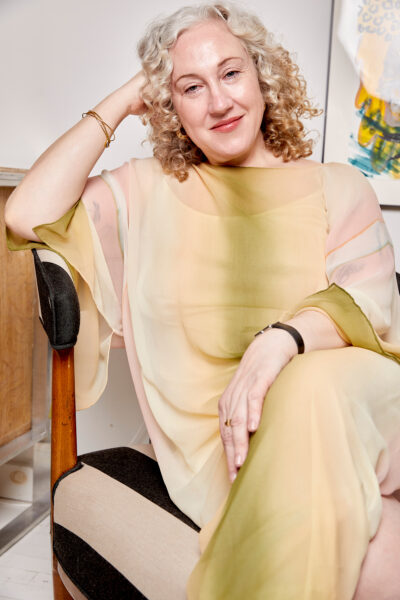
Although there have been significant company structure changes, it is hard to think about or define Glossier without its founder, Emily Weiss. How would you characterize her position in the industry and the contemporary beauty culture? In retrospect, what are some things that she did right, and what didn’t feel so right? How was your interaction with Weiss when preparing for the book?
Emily was pretty unique in that she was a visible founder of the company, a name that many people knew, but she wasn’t coming to it as a celebrity. She wasn’t Rihanna launching Fenty or Selena Gomez launching Rare Beauty. There are other lines like Anastasia Beverly Hills or Makeup by Mario where those people are somewhat recognizable, but usually because their celebrity fans and clients elevate them. If you ask people to name a beauty founder, they’d be hard-pressed to name another one that wasn’t a celebrity or something like that. She also didn’t name the brand after herself. I’ve been to the Glossier stores a few times with her, and many people had no idea who she was, and that’s a good thing. It means your brand is significant beyond superfans. She also made the stores really striking, immersive, and art-directed. Strangers talk to each other, which rarely happens in cities like New York and London. All of those things were very smart.
But there were also some missteps, like the challenges of scaling a company growing incredibly rapidly every year. Glossier was her first business and pretty much her first real job. She was so young and so inexperienced. She’s very smart and savvy, but you know, no one can learn on the job on that level. I’m sure there’ll be plenty of changes and mistakes when you’re growing your own company, but it would’ve been helpful if she had identified them earlier and course-corrected. It’s where so many people’s greatest strength is also their greatest weakness. She’s such a perfectionist; she’s so good at knowing her vision and hiring people, but she’s not good at giving away any control.
One of the most defining characteristics of the Glossier culture is an unapologetic acceptance of the self. In a way, in an industry that makes it so hard to embrace one’s flaws, or rather what’s deemed as flaws, it could be seen as a positive outcome of the brand’s marketing strategies. But between brand marketing and real feelings, this can be a fine line to navigate. Do you think Glossier’s approach was honest or helped individuals feel good about themselves?
I think it’s honest, to an extent. Maybe if you compare it to how beauty was marketed in the 80s or 90s. I remember these commercials in the 80s with Kelly LeBrock as the model, and the line was like: “Don’t hate me because I’m beautiful.” So much of it was about people you’ll never look like, and you’re buying products to maybe look a bit more like them. Or it’s the colors of the seasons whether or not they flatter you. I think Glossier’s approach, with people who looked more like people on the street and products that were not meant to have a lot of artistry, tried to appeal to the way many women actually wear makeup. You’re throwing on a little blush to look a bit more alive or a little more pulled together. Makeup as an afterthought — it doesn’t have to be your whole personality or a 30-minute routine if you don’t want it to be. But you know, all that stuff, it’s still capitalism. They’re doing all this stuff to keep selling things to you. Still, if you looked at Emily and the people who worked there, they seemed to be smart, independent women. It was definitely the world that they were living in and probably was authentic to them.
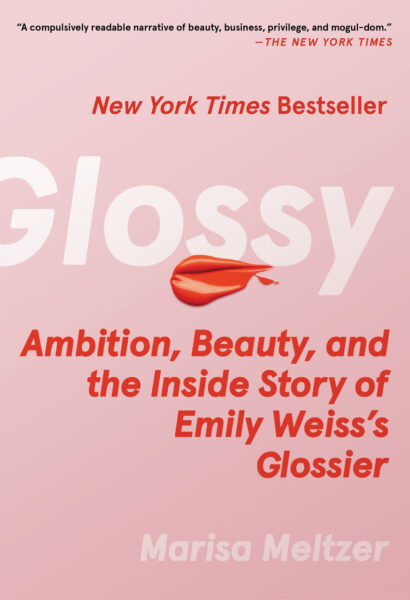
Language certainly plays a role in shaping the industry’s beauty standards. What was unique and era-defining about how Into The Gloss and Glossier used language?
I think the names of the products themselves are pretty telling. Annie Kreighbaum was one of their early editorial people who came up with names such as Boy Brow for the eyebrow product and Cloud Paint for their blush. It’s not like these phrases mean anything, but at the same time, you understand precisely what they’re conveying, right? Boy Brow is like a full, lush brow, like the boys have. It’s not like this thin Marlene Dietrich kind of thing. That was kind of genius and shaped the way. If Boy Brow were called “gel pomade for brows,” it wouldn’t have had the same cult status.
They’re also using words like inclusivity and empowerment, which is nothing new, using the language of feminism or women’s liberation to feel good about buying lipstick. That playbook was not utterly unique to Glossier. But it worked for them. It wasn’t like Victoria’s Secret —the lingerie brand with so many issues around politics and sex— trying to rebrand themselves as feminist and empowered, or Weight Watchers, the diet company, becoming a wellness company. That stuff is much worse to me and more bold in the way they’re trying to use whatever the trendy language of the day is.
If you think about that girl proudly sporting the Glossier sweatshirt in 2014, what do you think she’s doing and using now? How do you think the almost cult-ish Glossier customer base has changed or evolved since the brand’s launch in 2014?
One issue they’re having is that these customers are growing up, and the brand is faced with the question: “Do we grow up alongside our core customers?” The woman you’re saying in 2014, if she were in college then, like 21-22, she’d be 30-31 now. For me, Glossier appeals to those who are no longer teenagers and whose main concern isn’t necessarily just getting rid of acne. There’s also a certain age—I think for many people I know, it’s their 30s—when you start getting a little more serious, asking yourself, should I have a Vitamin C serum to even out skin tone? Or should I be using retinol for wrinkles? So I think that woman is probably sticking with some of her favorite Glossier products, which are classic; maybe that’s the cleanser, Boy Brow, or fragrance. Then perhaps she is branching out to more expensive products with more active ingredients for other parts of her routine or splurging in getting a Tom Ford lipstick.
Also, there will always be teenagers and young people discovering Glossier. The best-case scenario probably is a Spice Girls Reunion Tour or Taylor Swift kind of thing— people who started liking Glossier ten years ago alongside the ones who are just discovering it, and, eventually, it’ll be parents and their children or whoever else.
What lessons can the beauty industry professionals and young beauty entrepreneurs learn from the Glossier story?
How hard it is to have a brand, especially in this market where it’s so saturated with new brands and celebrity brands. The most important thing is having a clear sense of your brand, who your customer is, what you want them to get from the brand, and how you sell it. I think Glossier had a very clear idea of that in a way less crowded market. There are a lot of brands now that don’t have very clear ideas, and in a market where they’re really vying for customers’ attention. I don’t even remember how Scarlett Johansson’s beauty line was supposed to differentiate itself, but I do know that she had one. It’s also about how hard it is to scale and grow. Just because you beat the odds as a woman or as someone who is looking for money for a female-oriented enterprise, and a venture capital company offers you a lot of money, it’d be hard to say no to that, but I don’t know that the right answer is always yes.
I love that you mentioned the challenge for female-oriented enterprises and how it’s not as realized how incredibly powerful and massive the beauty industry is. Why do you think it was necessary to tell the story of Glossier with your book?
That is part of why I wanted to write the book. I was really obsessed with the power of the beauty industry. It was something that I knew about because I’d been reporting on these topics, and I felt that people who worked maybe in fashion or media also understood it. But no one else really did or cared. You know, all these books have been coming out about tech founders and people and companies in the news that are very current, but none of them were women or about female-led companies. I also thought the book would be really unique because I wasn’t contracted by Glossier to write their story, but also, this wasn’t about criminal behavior or something like the Bad Blood: Secrets Lies In A Silicon Valley Startup story. So, this book could be wholly on its own in terms of analysis and tone. It could be a business book, and it could also be for fans of the brand. It could also tell the story of a decade or so in the world, and I think it worked out.
Absolutely. I believe you said in an interview that the most feminist thing you could imagine doing was to allow Emily (and the story of Glossier) the full complexity.
Yeah, I’m not oversimplifying it. I do think there’s so much pressure to summarise your thoughts on a company in one or two words, the classic elevator pitch, as they call it in Hollywood. It’s very convenient to say, “My book is about how Glossier was a house of lies, or how Emily Weiss is like the best leader in the world and should be president.” Instead, I wanted something that was so much more nuanced. And I had to be like, that’s a good thing (this idea of nuanced and feminist storytelling), and it’s doing a favor to Emily and other female leaders, too.
You argue that the Glossier era may be coming to an end. Where do you think the shift in beauty culture is moving from there?
There are so many companies trying to crack the men’s beauty market. People are definitely trying to become the Glossier of Gen Alpha. There have been articles about how 13-year-olds have these multiple-step skincare routines— I did not have that! I also think we’re seeing this swing into really expensive skincare like Augustinus Bader and Barbara Sturm kind of lines, the Net-a-Porter ones where many creams are 250£ and way way up. I see at-home devices like LYMA or light therapy devices all the time. I have zero interest in that, but some people love them. It’d probably sit somewhere in my home.



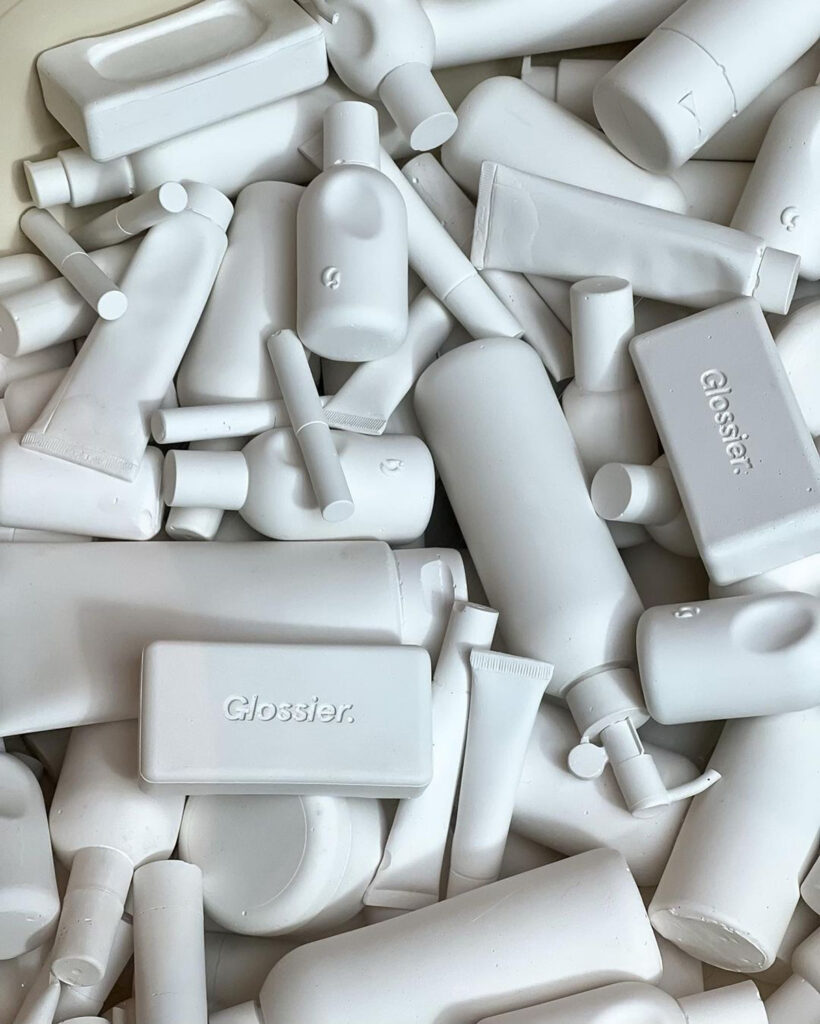
 Previous
Previous
